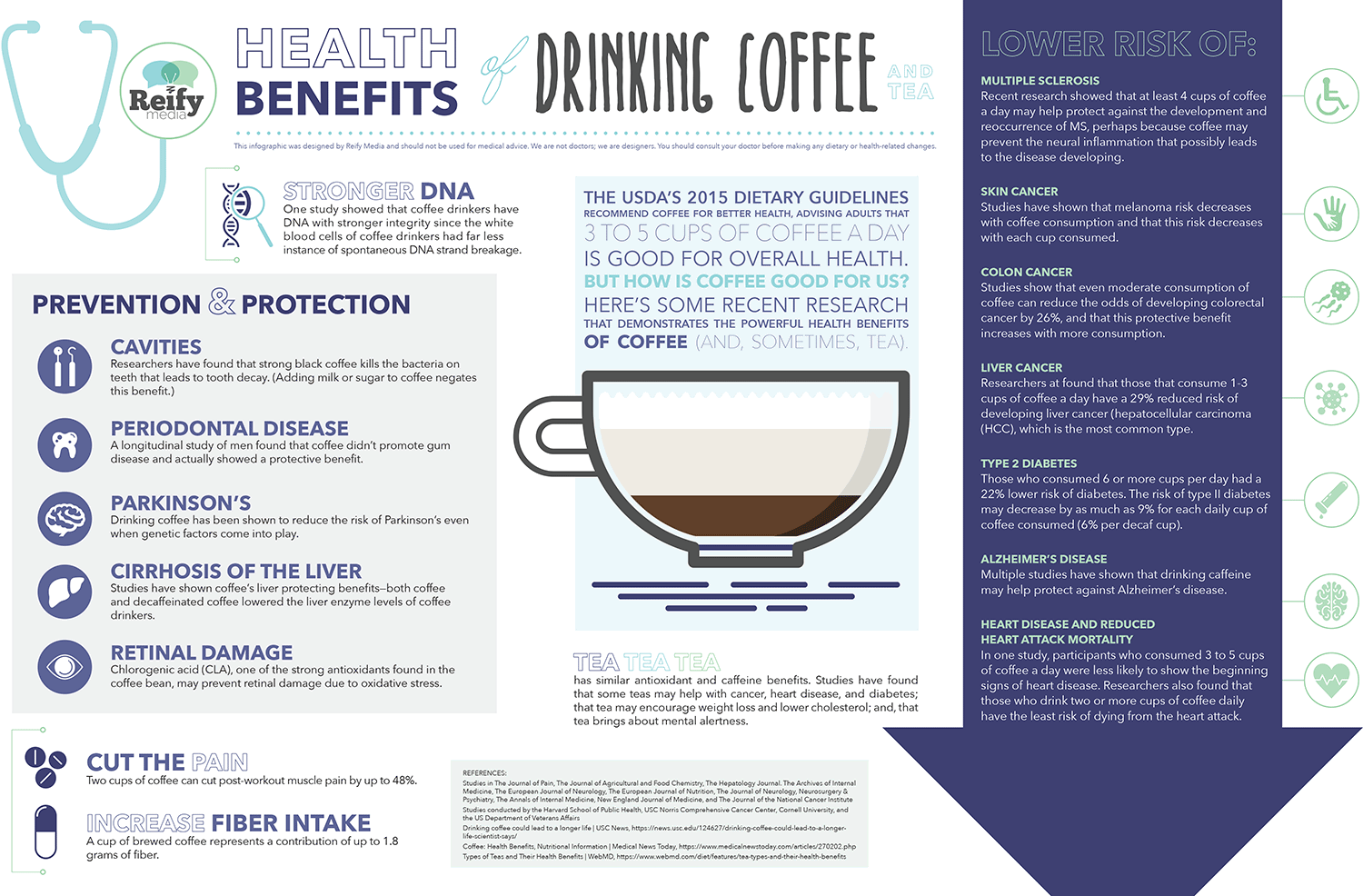3. Coffee may help to reduce the risk of chronic liver disease
A study has found that consuming caffeinated or decaffeinated coffee that’s instant or ground is linked to a lower risk of chronic liver disease and associated liver conditions. Researchers found that consuming any kind of coffee was linked to a lower risk of developing or dying from chronic liver disease in comparison to no coffee consumption, with the optimal benefit at 3 to 4 cups daily.1✅ JOURNAL REFERENCE
DOI: 10.1186/s12889-021-10991-7
The authors examined data from the UK Biobank on 495,585 individuals with a history of consuming coffee, who were followed over an average of 10.7 years for monitoring which participants went on to develop chronic liver disease or associated liver conditions.
Of all individuals involved in the study, 78% drank instant or ground decaffeinated or caffeinated coffee, while 22% didn’t consume any kind of coffee. The researchers recorded 3,600 chronic liver disease cases throughout the study period, which included 301 deaths. There were also 5,439 fatty liver disease cases, and 184 cases of a kind of liver cancer known as Hepatocellular carcinoma.
Participants who consumed coffee had a 21% lower chronic liver disease risk, a 20% lower fatty liver disease risk, and a 49% lower risk of dying from chronic liver disease in comparison to non-coffee drinkers. The greatest benefit was observed in the group who consumed ground coffee, which contains higher amounts of cafestol and Kahweol, ingredients that have been found to protect against chronic liver disease in animal studies.
Although instant coffee has low amounts of cafestol and Kahweol, it was also linked to a lower chronic liver disease risk. Although the reduced risk was smaller than that linked to ground coffee, the results may indicate that other ingredients might be beneficial.
The researchers caution that because the consumption of coffee was only reported when individuals first signed up for the study, any changes in the quantity or kind of coffee they drank over the 10.7-year study period were not accounted for.

Image Source – reifymedia


